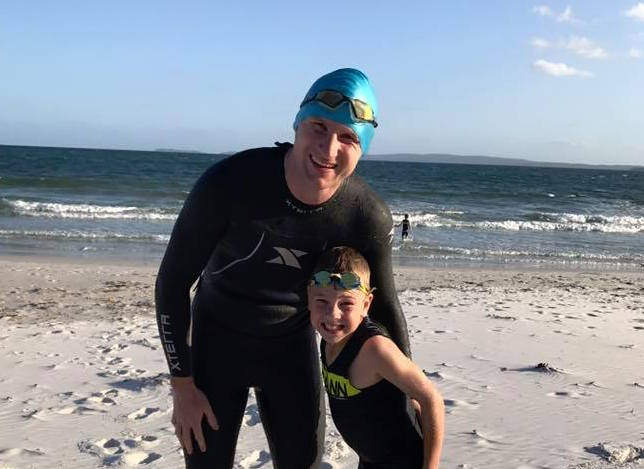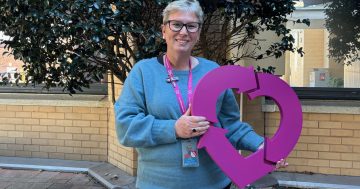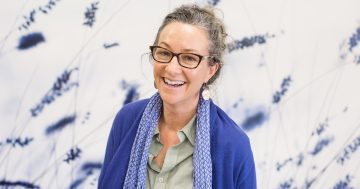
Do you know a Canberran who has donated a kidney to save a loved one? I know three such heroes, and have met the beneficiaries of two others. Theirs are our city’s greatest love stories. Of parent and child, husband and wife, colleague or friend, making a huge and high-risk sacrifice to save the life of someone they care about.
Their stories move me to tears, but make me wonder why so many of us have yet to sign up to the Australian Organ Donor Register. If these people are prepared to go through surgery and the risks involved in living afterwards with only one kidney, how can we not commit to passing on our organs once they are no longer of any value to us?
Here’s one such story, about 9-year-old Canberra Harry Irvine who runs triathlons these days with his dad (and kidney donor) Brendan Irvine:
Perhaps in part because of inspirational stories like that of Brendan and Harry, it turns out we’re ahead of the nation when it comes to organ and tissue donation here in the ACT.
Last week, Acting Health Minister Mick Gentleman announced that we’re leading the country, with a rate of 32.3 donations per million of population compared to the national rate of 20.8. He added that the ACT recorded the highest number ever of donation and transplantation outcomes for the ACT in 2016, with 59 people receiving life-saving organ transplants thanks to 20 organ donors and their families. This was a 54% increase in the number of deceased organ donors and an increase in the number of lives saved after transplant compared with 2015.
But what about all the people who could’ve been saved if more of us were signed up to the Organ Donator Register?
In fact, I reckon we have the system all wrong. Organ donation should be the standard from which we must opt out, rather than a choice we can opt in for. Dozens of countries around the world, including Spain, Austria, and Belgium, operate an opt-out system. Here are some stats to demonstrate the benefits: Germany, which uses an opt-in system, has an organ donation consent rate of 12% among its population, while Austria, a country with a very similar culture and economic development, but which uses an opt-out system, has a consent rate of 99.98%.
Last year, 1448 Australians received a lifesaving transplant as a result of the generosity of 503 deceased organ donors whose families agreed to donation at the time of their loved one’s death.
If ticking a box on a website could save the lives of up to ten people after we’re gone, why wouldn’t we say yes to becoming an organ donor?
Yes, in some cases there are health reasons or matters of faith that preclude individuals from signing up to the program, but I suspect in most cases the reason we’re not signing up is because it’s an administrative matter that is just not a priority for us on any given day. Essentially, we’re too lazy.
That’s why I reckon we should all be organ donors by default unless we take those administrative steps to opt out. The Federal Government should legislate to make it so.
I’m not arguing for compulsory donation, just a default position that is the opposite to that we have now: opt-out rather than opt-in.
In the meantime, if you’re not signed up to the organ donor register, please consider doing it today, and let family members know of your wishes so that they don’t overrule your call on the matter after you’re gone. It’s important to discuss it with them so that everyone is clear about what you want to happen after your death. They’re more likely to respect your wishes if they understand how serious you are about helping to save the lives of others after you’re gone.
Details on how to sign up to the register are here.
To learn more about organ and tissue donation phone DonateLife ACT on 6174 5625 or visit www.donatelife.gov.au.
Pictured above are Brendan Irvine and son Harry, 9, who competed in their first triathlon to mark a year to the day of their kidney transplant (Brendan donated a kidney to Harry on February 19, 2015). Here, the pair celebrate together after their second triathlon, in December. Photo: Susie Irvine

















